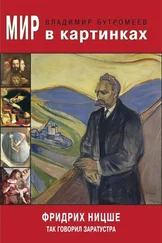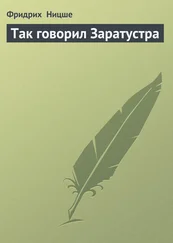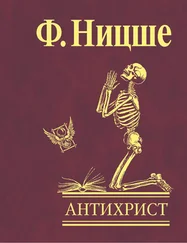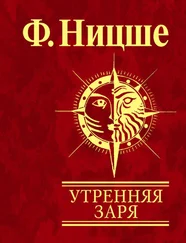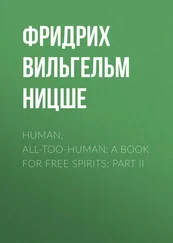Фридрих Ницше - Thoughts Out of Season, Part II
Здесь есть возможность читать онлайн «Фридрих Ницше - Thoughts Out of Season, Part II» — ознакомительный отрывок электронной книги совершенно бесплатно, а после прочтения отрывка купить полную версию. В некоторых случаях можно слушать аудио, скачать через торрент в формате fb2 и присутствует краткое содержание. Жанр: Философия, literature_19, foreign_antique, foreign_prose, на английском языке. Описание произведения, (предисловие) а так же отзывы посетителей доступны на портале библиотеки ЛибКат.
- Название:Thoughts Out of Season, Part II
- Автор:
- Жанр:
- Год:неизвестен
- ISBN:нет данных
- Рейтинг книги:3 / 5. Голосов: 1
-
Избранное:Добавить в избранное
- Отзывы:
-
Ваша оценка:
- 60
- 1
- 2
- 3
- 4
- 5
Thoughts Out of Season, Part II: краткое содержание, описание и аннотация
Предлагаем к чтению аннотацию, описание, краткое содержание или предисловие (зависит от того, что написал сам автор книги «Thoughts Out of Season, Part II»). Если вы не нашли необходимую информацию о книге — напишите в комментариях, мы постараемся отыскать её.
Thoughts Out of Season, Part II — читать онлайн ознакомительный отрывок
Ниже представлен текст книги, разбитый по страницам. Система сохранения места последней прочитанной страницы, позволяет с удобством читать онлайн бесплатно книгу «Thoughts Out of Season, Part II», без необходимости каждый раз заново искать на чём Вы остановились. Поставьте закладку, и сможете в любой момент перейти на страницу, на которой закончили чтение.
Интервал:
Закладка:
Friedrich Wilhelm Nietzsche
Thoughts Out of Season, Part II
INTRODUCTION
The two essays translated in this volume form the second and third parts of the Unzeitgemässe Betrachtungen . The essay on history was completed in January, that on Schopenhauer in August, 1874. Both were written in the few months of feverish activity that Nietzsche could spare from his duties as Professor of Classical Philology in Bâle.
Nietzsche, who served in an ambulance corps in '71, had seen something of the Franco-German War, and to him it was the “honest German bravery” that had won the day. But to the rest of his countrymen it was a victory for German culture as well; though there were still a few elegancies, a few refinements of manners, that might veneer the new culture, and in this regard the conquered might be allowed the traditional privilege of conquering the conquerors. Nietzsche answered roundly, “the German does not yet know the meaning of the word culture,” and in the essay on history set himself to show that the so-called culture was a morass into which the German had been led by a sixth sense he had developed during the nineteenth century – the “historical sense”: he had been brought by his spiritual teachers to believe that he was the “crown of the world-process” and that his highest duty lay in surrendering himself to it.
With Nietzsche, the historical sense became a “malady from which men suffer,” the world-process an illusion, evolutionary theories a subtle excuse for inactivity. History is for the few not the many, for the man not the youth, for the great not the small – who are broken and bewildered by it. It is the lesson of remembrance, and few are strong enough to bear that lesson. History has no meaning except as the servant of life and action: and most of us can only act if we forget. This is the burden of the first essay; and turning from history to the historian he condemns the “noisy little fellows” who measure the motives of the great men of the past by their own, and use the past to justify their present.
But who are the men that can use history rightly, and for whom it is a help and not a hindrance to life? They are the great men of action and thought, the “lonely giants amid the pigmies.” To them alone can the record of their great forebears be a consolation as well as a lesson. In the realm of thought, they are of the type of the ideal philosopher sketched in the second essay. To Nietzsche the only hope of the race lies in the “production of the genius,” of the man who can bear the burden of the future and not be swamped by the past: he found the personal expression of such a man, for the time being, in Schopenhauer.
Schopenhauer here stands, as a personality, for all that makes for life in philosophy, against the stagnation of the professional philosopher. The last part of the essay is a fierce polemic against state-aided philosophy and the official position of the professors, who formed, and still form, the intellectual aristocracy of Germany, with a cathedral authority on all their pronouncements.
But “there has never been a eulogy on a philosopher,” says Dr. Kögel, “that has had so little to say about his philosophy.” The essay on Schopenhauer is of value precisely because it has nothing to do with Schopenhauer. We need not be disturbed by the thought that Nietzsche afterwards turned from him. He truly recognised that Schopenhauer was here merely a name for himself, that “not Schopenhauer as educator is in question, but his opposite, Nietzsche as educator” ( Ecce Homo ). He could regard Schopenhauer, later, as a siren that called to death; he put him among the great artists that lead down – who are worse than the bad artists that lead nowhere. “We must go further in the pessimistic logic than the denial of the will,” he says in the Götzendämmerung ; “we must deny Schopenhauer.” The pessimism and denial of the will, the blank despair before suffering, were the shoals on which Nietzsche's reverence finally broke. They could not stand before the Dionysian outlook, whose pessimism sprang not from weakness but strength, and in which the joy of willing and being can even welcome suffering. In this essay we hear little of the pessimism, save as the imperfect and “all-too-human” side of Schopenhauer, that actually brings us nearer to him. Later, he could part the man and his work, and speak of Schopenhauer's view as the “Evil eye.” But as yet he is a young man who has kept his illusions, and, like Ogniben, he judges men by what they might be.
Afterwards, he judged himself too in these essays by “what he might be.” “To me,” he said in Ecce Homo , “they are promises: I know not what they mean to others.”
It is also in the belief they are promises that they are here translated “for others.” The Thoughts out of Season are the first announcement of the complex theme of the Zarathustra . They form the best possible introduction to Nietzschean thought. Nietzsche is already the knight-errant of philosophy: but his adventure is just beginning.
A. C.THE USE AND ABUSE OF HISTORY.
PREFACE
“I hate everything that merely instructs me without increasing or directly quickening my activity.” These words of Goethe, like a sincere ceterum censeo , may well stand at the head of my thoughts on the worth and the worthlessness of history. I will show in them why instruction that does not “quicken,” knowledge that slackens the rein of activity, why in fact history, in Goethe's phrase, must be seriously “hated,” as a costly and superfluous luxury of the understanding: for we are still in want of the necessaries of life, and the superfluous is an enemy to the necessary. We do need history, but quite differently from the jaded idlers in the garden of knowledge, however grandly they may look down on our rude and unpicturesque requirements. In other words, we need it for life and action, not as a convenient way to avoid life and action, or to excuse a selfish life and a cowardly or base action. We would serve history only so far as it serves life; but to value its study beyond a certain point mutilates and degrades life: and this is a fact that certain marked symptoms of our time make it as necessary as it may be painful to bring to the test of experience.
I have tried to describe a feeling that has often troubled me: I revenge myself on it by giving it publicity. This may lead some one to explain to me that he has also had the feeling, but that I do not feel it purely and elementally enough, and cannot express it with the ripe certainty of experience. A few may say so; but most people will tell me that it is a perverted, unnatural, horrible, and altogether unlawful feeling to have, and that I show myself unworthy of the great historical movement which is especially strong among the German people for the last two generations.
I am at all costs going to venture on a description of my feelings; which will be decidedly in the interests of propriety, as I shall give plenty of opportunity for paying compliments to such a “movement.” And I gain an advantage for myself that is more valuable to me than propriety – the attainment of a correct point of view, through my critics, with regard to our age.
These thoughts are “out of season,” because I am trying to represent something of which the age is rightly proud – its historical culture – as a fault and a defect in our time, believing as I do that we are all suffering from a malignant historical fever and should at least recognise the fact. But even if it be a virtue, Goethe may be right in asserting that we cannot help developing our faults at the same time as our virtues; and an excess of virtue can obviously bring a nation to ruin, as well as an excess of vice. In any case I may be allowed my say. But I will first relieve my mind by the confession that the experiences which produced those disturbing feelings were mostly drawn from myself, – and from other sources only for the sake of comparison; and that I have only reached such “unseasonable” experience, so far as I am the nursling of older ages like the Greek, and less a child of this age. I must admit so much in virtue of my profession as a classical scholar: for I do not know what meaning classical scholarship may have for our time except in its being “unseasonable,” – that is, contrary to our time, and yet with an influence on it for the benefit, it may be hoped, of a future time.
Читать дальшеИнтервал:
Закладка:
Похожие книги на «Thoughts Out of Season, Part II»
Представляем Вашему вниманию похожие книги на «Thoughts Out of Season, Part II» списком для выбора. Мы отобрали схожую по названию и смыслу литературу в надежде предоставить читателям больше вариантов отыскать новые, интересные, ещё непрочитанные произведения.
Обсуждение, отзывы о книге «Thoughts Out of Season, Part II» и просто собственные мнения читателей. Оставьте ваши комментарии, напишите, что Вы думаете о произведении, его смысле или главных героях. Укажите что конкретно понравилось, а что нет, и почему Вы так считаете.
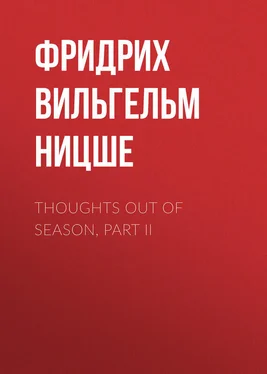

![Фридрих Ницше - Песни Заратустры [сборник]](/books/28216/fridrih-nicshe-pesni-zaratustry-sbornik-thumb.webp)
